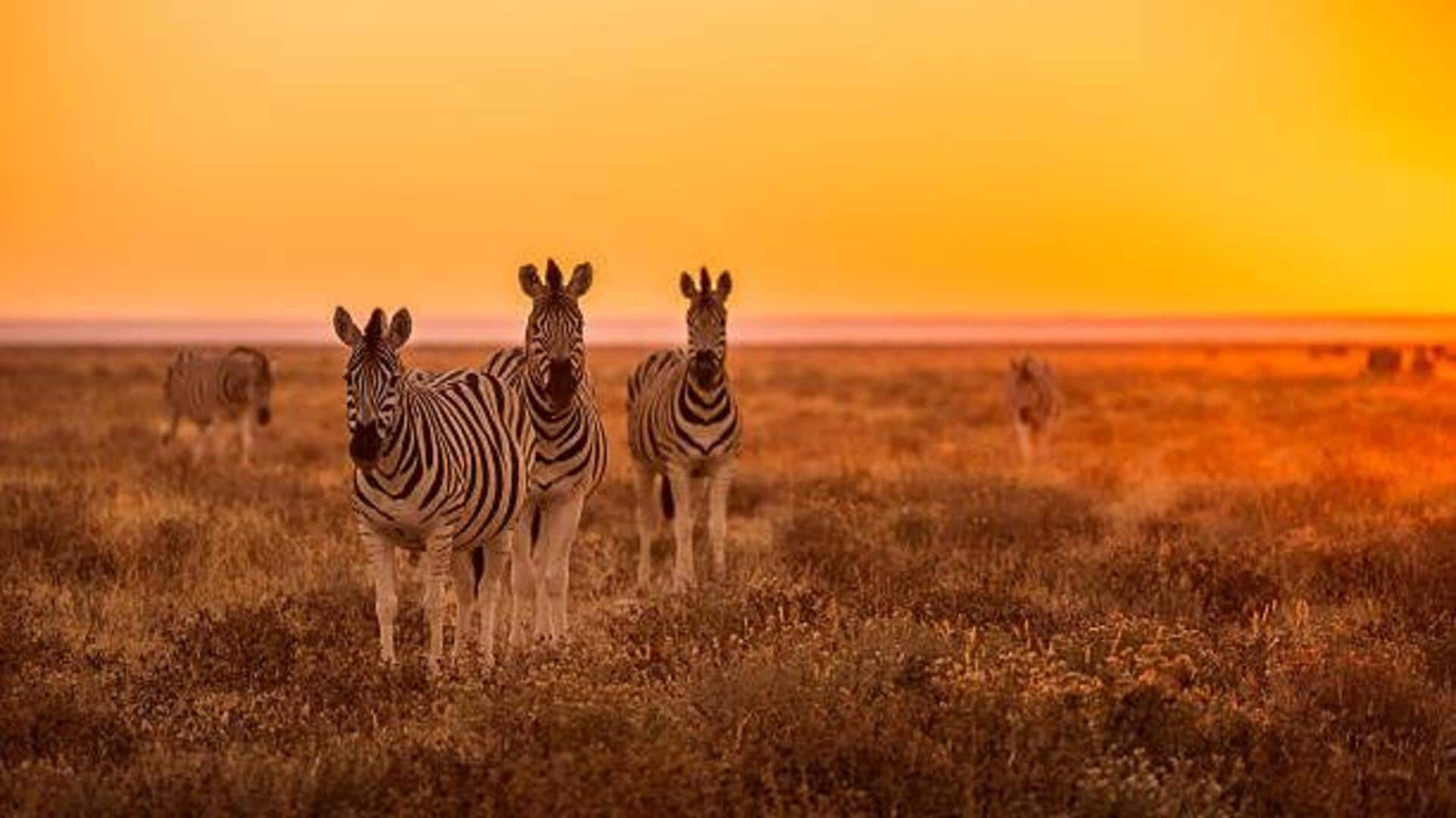
Exploring wildlife conservation in Etosha National Park
What's the story
Namibia's Etosha National Park is a wildlife lover's dream come true.
Covering over 22,000 square kilometers, it provides a rare chance to witness Africa's iconic animals in their natural environment while actively supporting their conservation.
This article explores the world of wildlife conservation safaris in Etosha, focusing on how visitors can interact with and contribute to the preservation of these amazing animals.
Conservation
Understanding conservation efforts
Conservation safaris in Etosha go beyond wildlife spotting. They highlight the park's commitment to protecting its species, including those at risk of extinction.
Visitors on guided tours gain knowledge about anti-poaching measures, habitat restoration, and the challenges faced in conservation. This understanding fosters a greater appreciation for the work involved in maintaining biodiversity in the park.
Engagement
Participatory activities for visitors
A big part of conservation safaris is getting visitors involved.
Tour operators provide opportunities for tourists to track wildlife alongside researchers, contribute to data collection, and even help with community projects that benefit conservation.
By participating in these hands-on experiences, tourists can actively support wildlife preservation while deepening their appreciation for ecological balance and sustainability.
Learning
The role of education in conservation
The role of education in wildlife conservation is a central theme at Etosha National Park.
Guests are immersed in a variety of educational experiences, including workshops and lectures by experts in the fields of ecology, species behavior, and the environmental challenges facing the park's residents.
This focus on education equips visitors with the knowledge and tools to contribute to conservation efforts, even beyond their stay at Etosha National Park.
Sustainability
Sustainable tourism practices
Conservation safaris focus on sustainable tourism. Operators strive for minimal environmental impact through eco-friendly practices.
These include using green vehicles, minimizing waste with recycling programs, and conserving water.
By selecting eco-conscious accommodations and adhering to local guidelines for wildlife interaction, guests can help preserve Etosha National Park for generations to come.
Tips
Tips for responsible safari participation
To maximize your enjoyment and ensure your visit benefits the park:
Always adhere to your guide's directions during tours; never feed or harass animals; stay on designated trails; patronize local businesses; and consider donating to conservation initiatives within Etosha National Park.
These small efforts can make a big difference in protecting this unique ecosystem for years to come.